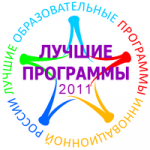|
In April 15, 2015 the prosecutor edge chaired by the Deputy Prosecutor of the Krasnoyarsk Territory, Senior Advisor of Justice, curator of the Department of prosecutorial supervision SFU Law Institute held a regular meeting of the Scientific Advisory Boar
Experienced practitioners from Krasnoyarsk Regional Court, the Prosecutor's Office of Krasnoyarsk Krai, Russia GUS UK in the Krasnoyarsk Territory, GSU Research Affairs of Russia for the Krasnoyarsk and the Law Institute of SibFU scientists discussed the difficult questions of law enforcement. For example, accepting a bribe of high school teachers from the whole group of students (say, 30) through the elder groups: one is the continued collection of 30 crime or crime? Or illegal registration ("registration"), the owner of the property at one time 100 "guest workers" in its housing ("rubber flat") - is one offense or an aggregate of 100 crimes (by nekakonnyh registration of citizens)? It is worth noting that the investigative and judicial and prosecutorial practice in different regions (even within the Krasnoyarsk Territory) on this legal situation is not uniform. Scientific positions on issues considered by the NCC presented Yu.S.Letnikov, PhD, assistant professor of the department of criminal law and criminal procedure, a federal judge in honorable retirement; A.D.Nazarov, PhD, Associate Professor, Head of Criminal Procedure Law Institute SFU lawyer Krasnoyarsk Bar "Shpagin and partners"; L.V.Mayorova, Associate Professor, PhD, assistant professor of criminal proceedings; D.V.Shinkevich, Associate Professor, PhD, assistant professor of criminal procedure, the deputy chief GSU Research Affairs of Russia for the Krasnoyarsk Territory, Colonel of Justice. It should be noted that the actual practical materials with meetings of the Scientific Advisory Board of the regional court, regional prosecutor's office subsequently become useful in teaching jurisprudential disciplines for law students, which, of course, is an important component of the practice-based learning, and arousing students' interest in the subjects criminal law cycle. |


